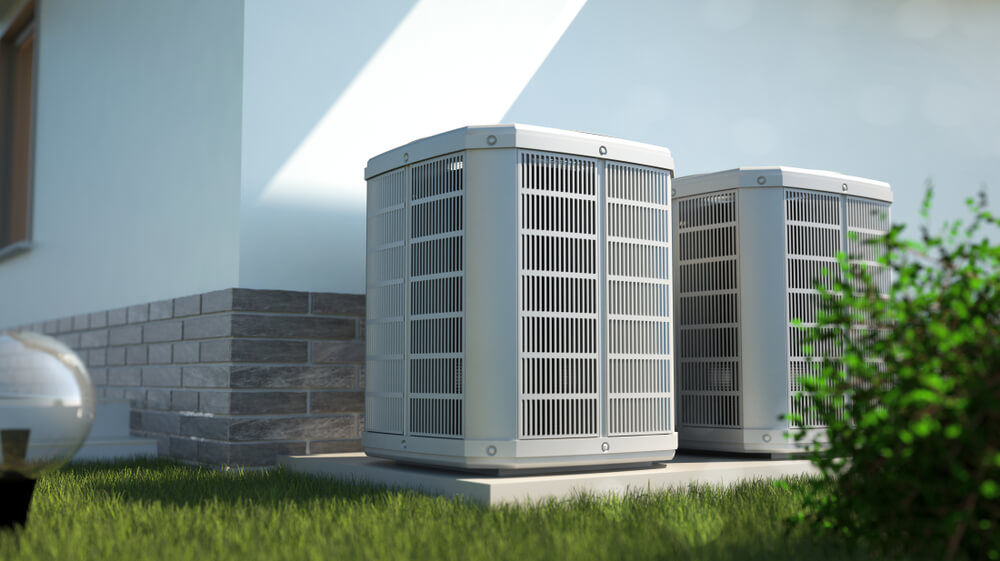As the summer heat settles in Toronto and the Greater Toronto Area (GTA), your home’s air conditioner becomes your ultimate companion. Maintaining a comfortable and pleasant living environment for you and your household. However, just like any other appliance, air conditioners have a lifespan. Over time, they may show signs of wear and tear that indicate it’s time for a replacement. In this comprehensive guide, we will share six essential signs that indicate you need to replace your air conditioner. We have included practical tips and advice to ensure a smooth transition to a new and efficient cooling solution.
Age of Your Air Conditioner
The age of your air conditioner is a crucial factor in determining whether it’s time for a replacement. On average, a well-maintained air conditioner can last between 10 to 15 years. If your unit has surpassed this timeframe, it’s likely that it may encounter more frequent breakdowns, reduced efficiency, and higher energy consumption. Upgrading to a newer, more energy-efficient model can bring numerous benefits, including lower utility bills and improved cooling performance.
Practical Tip: Check the manufacturer’s label or installation date on your unit to determine its age. If it’s approaching or beyond the 10 to 15-year mark, consider investing in a new air conditioner.
Decreased Cooling Performance
One of the most apparent signs that your air conditioner is struggling is reduced cooling performance. If you notice that your Toronto home is not getting as cool as it used to or there are temperature inconsistencies throughout different rooms, it may indicate underlying issues with your AC unit. These problems could range from clogged air filters and ductwork issues to compressor malfunctions.
Practical Tip: Regularly clean or replace air filters and ensure proper airflow throughout the system. If the cooling performance doesn’t improve, contact our team at North Wind HVAC to schedule an inspection with our licensed HVAC technicians.

Frequent and Costly Repairs
As your air conditioner ages, it may require more frequent repairs to keep it operational. Frequent service calls can quickly add up in costs, making repair expenses less cost-effective than investing in a new air conditioner. If you find yourself calling technicians regularly for AC issues, it might be time to upgrade your air conditioner.
Practical Tip: Keep track of repair expenses and compare them to the cost of a new air conditioner. If repair costs exceed a significant portion of a new system’s price, it’s a strong indication that replacement is the wiser choice.
Rising Energy Bills
A significant increase in your energy bills without any corresponding changes in your cooling habits or increased temperature in Toronto & GTA, may signal that your air conditioner is becoming inefficient. Older air conditioners tend to consume more energy to deliver the same cooling output as newer, energy-efficient models.
Practical Tip: Monitor your monthly energy bills and track any unusual spikes. Consider upgrading to a high SEER (Seasonal Energy Efficiency Ratio) rated air conditioner. This option is great for improved energy efficiency and long-term cost savings.

Unusual Noises and Odors
Strange noises coming from your air conditioner, such as grinding, squealing, or scraping sounds, are indicative of internal problems that require immediate attention. Additionally, unpleasant odours emitted from the vents may indicate mould or other issues within the system, posing potential health hazards.
Practical Tip: Address any unusual noises or odours promptly by scheduling an inspection with a professional North Wind HVAC technician. They will be able to diagnose the source of the problem and determine if replacement is necessary.
Freon Usage and Environmental Impact
If your air conditioner uses an R-22 refrigerant (Freon), it’s essential to know that this refrigerant has been phased out by the Environmental Protection Agency due to its harmful effects on the ozone layer. As a result, servicing and repairing units with R-22 can be costly and environmentally detrimental.
Practical Tip: Consider upgrading to a new air conditioner that uses R-410A refrigerant. An eco-friendly alternative that is not harmful to the environment and is readily available.

Knowing the signs that indicate it’s time to replace your air conditioner is crucial. At North Wind HVAC, we believe that an informed decision is the key to a smooth transition to a new and reliable cooling system. By recognizing these six essential signs and following the practical tips and advice provided. You can make an educated choice that will keep your home cool and comfortable for years to come.
